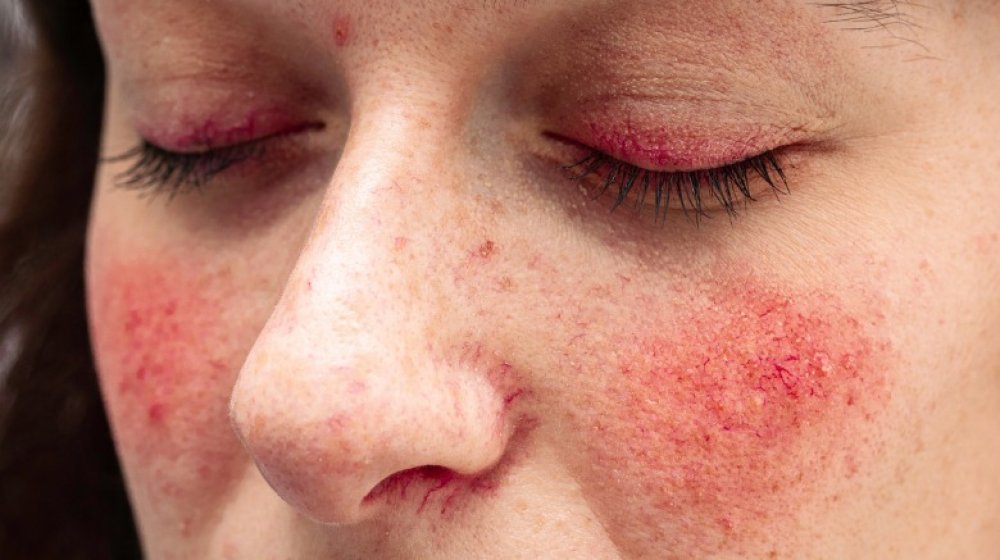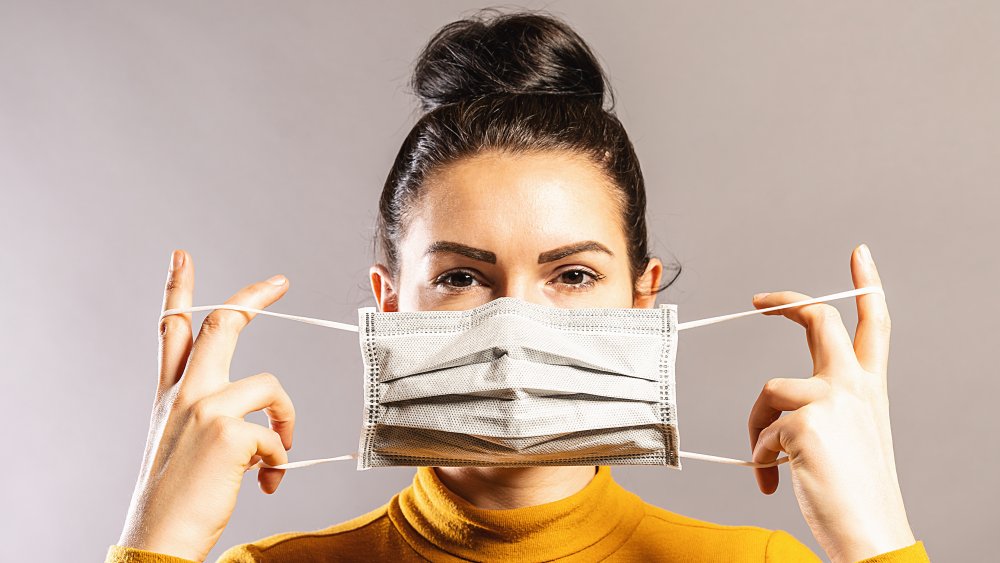Why Your Rosacea Is Getting Worse Right Now
Under normal circumstances a rosacea flare-up can be triggered by several factors, including temperature extremes, exercise, cosmetics, alcoholic beverages, or even sunlight or wind (via Mayo Clinic). And from a theoretical standpoint, time spent sheltering in place as a result of the pandemic should give your skin the perfect opportunity to heal itself. You may be working from home and, other than for Zoom meetings, you probably aren't doing your usual makeup routine — besides, you have to slip on a mask whenever you do go out, and masks and makeup don't mix. Being at home also means being less exposure to sun, wind, and air pollution. So, why doesn't it seem to be helping your skin?
Well, you can partially blame the pandemic. "For rosacea patients, stress and anxiety are prevalent triggers — and any sudden change in routine, like the pandemic, can give someone severe anxiety," Annie Gonzalez, a Miami-based dermatologist tells Refinery29. "Whenever the body is under any stress, certain chemicals like adrenaline and cortisol are released and prompt an inflammatory response in some rosacea patients."
And there's another possible reason for your rosacea flare-up that's related to the pandemic: the use of face masks to prevent the spread of COVID-19.
Wearing a mask can make rosacea worse
Here's why wearing a mask can affect your rosacea: "Because [it] is a result of skin barrier dysfunction and hypersensitivity around the blood vessels in the face, wearing a mask can exacerbate the disease," Dr. Gonzalez says. Basically, it's the cumulative effect of the friction, heat, and moist environment that a mask creates against your skin.
And while we know a flare-up is no fun, it's still important to wear your mask — there are very few genuine reasons for an exemption. Instead, try layering up on scent-free moisturizer to keep your skin hydrated so your face mask doesn't become a source of irritation (via National Rosacea Society). "If you have to go into public, try to always use a new or clean mask. As N95 masks are only recommended for a specific situation — for preventing virus transmission between a healthcare professional and a highly-symptomatic sick patient (think heavy coughing, face to face) — we are advising that everyone else protect themselves with plain cloth masks," Estee Williams, an assistant professor of dermatology at Mount Sinai School of Medicine, explains.

